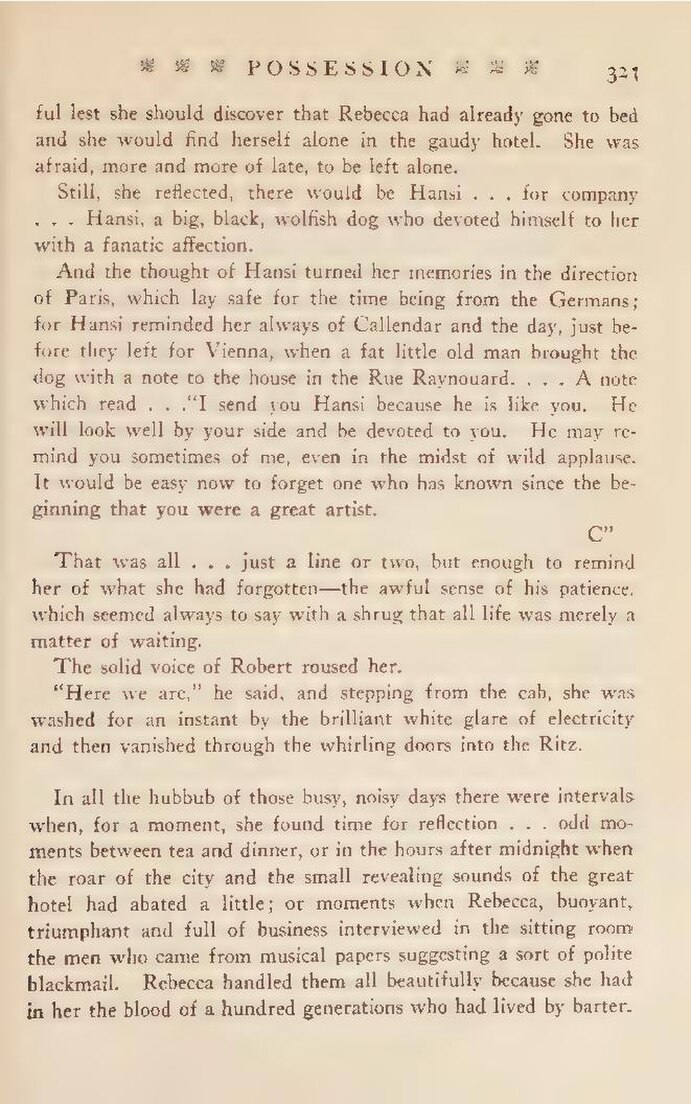ful lest she should discover that Rebecca had already gone to bed and she would find herself alone in the gaudy hotel. She was afraid, more and more of late, to be left alone.
Still, she reflected, there would be Hansi . . . for company . . . Hansi, a big, black, wolfish dog who devoted himself to her with a fanatic affection.
And the thought of Hansi turned her memories in the direction of Paris, which lay safe for the time being from the Germans; for Hansi reminded her always of Callendar and the day, just before they left for Vienna, when a fat little old man brought the dog with a note to the house in the Rue Raynouard. . . . A note which read . . . "I send you Hansi because he is like you. He will look well by your side and be devoted to you. He may remind you sometimes of me, even in the midst of wild applause. It would be easy now to forget one who has known since the beginning that you were a great artist.
That was all . . . just a line or two, but enough to remind her of what she had forgotten—the awful sense of his patience, which seemed always to say with a shrug that all life was merely a matter of waiting.
The solid voice of Robert roused her.
"Here we are," he said, and stepping from the cab, she was washed for an instant by the brilliant white glare of electricity and then vanished through the whirling doors into the Ritz.
In all the hubbub of those busy, noisy days there were intervals when, for a moment, she found time for reflection . . . odd moments between tea and dinner, or in the hours after midnight when the roar of the city and the small revealing sounds of the great hotel had abated a little; or moments when Rebecca, buoyant, triumphant and full of business interviewed in the sitting room the men who came from musical papers suggesting a sort of polite blackmail. Rebecca handled them all beautifully because she had in her the blood of a hundred generations who had lived by barter.
